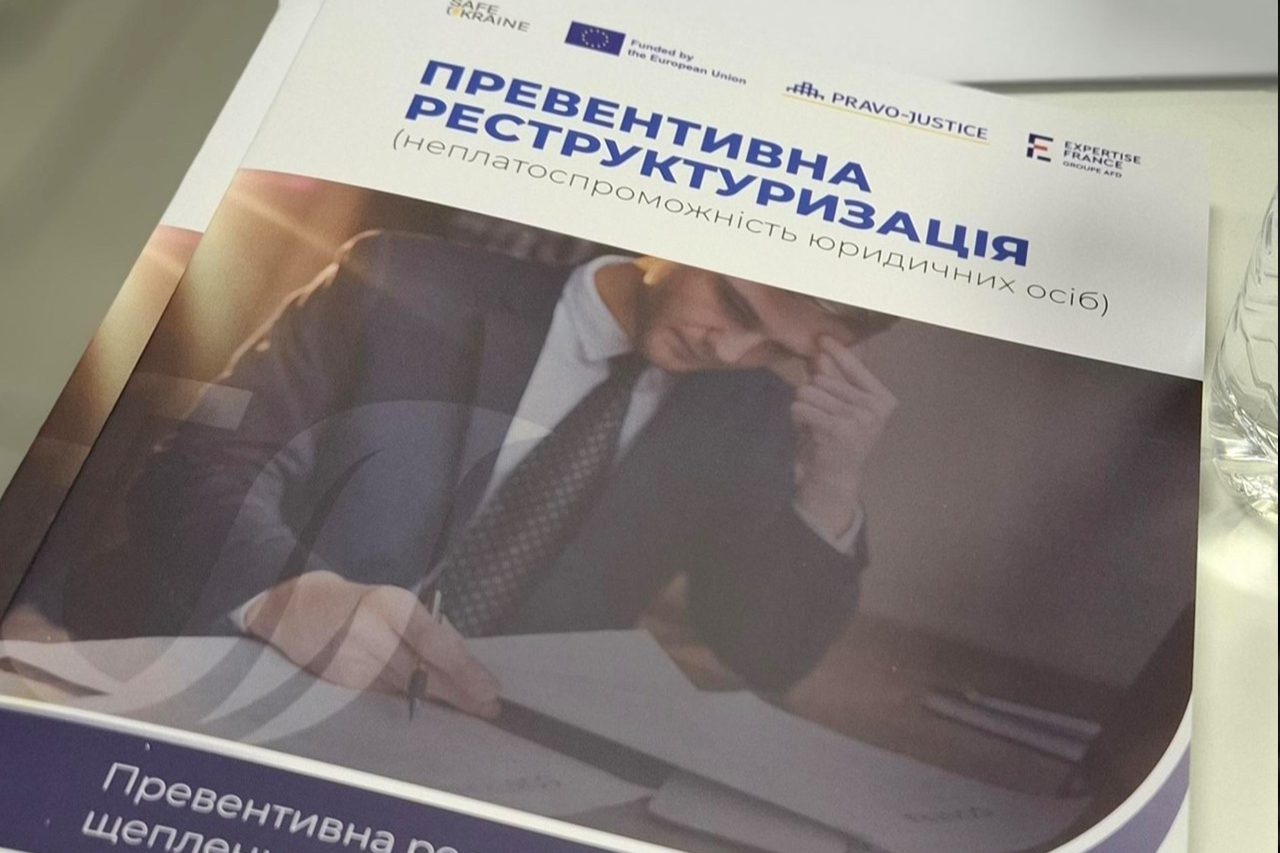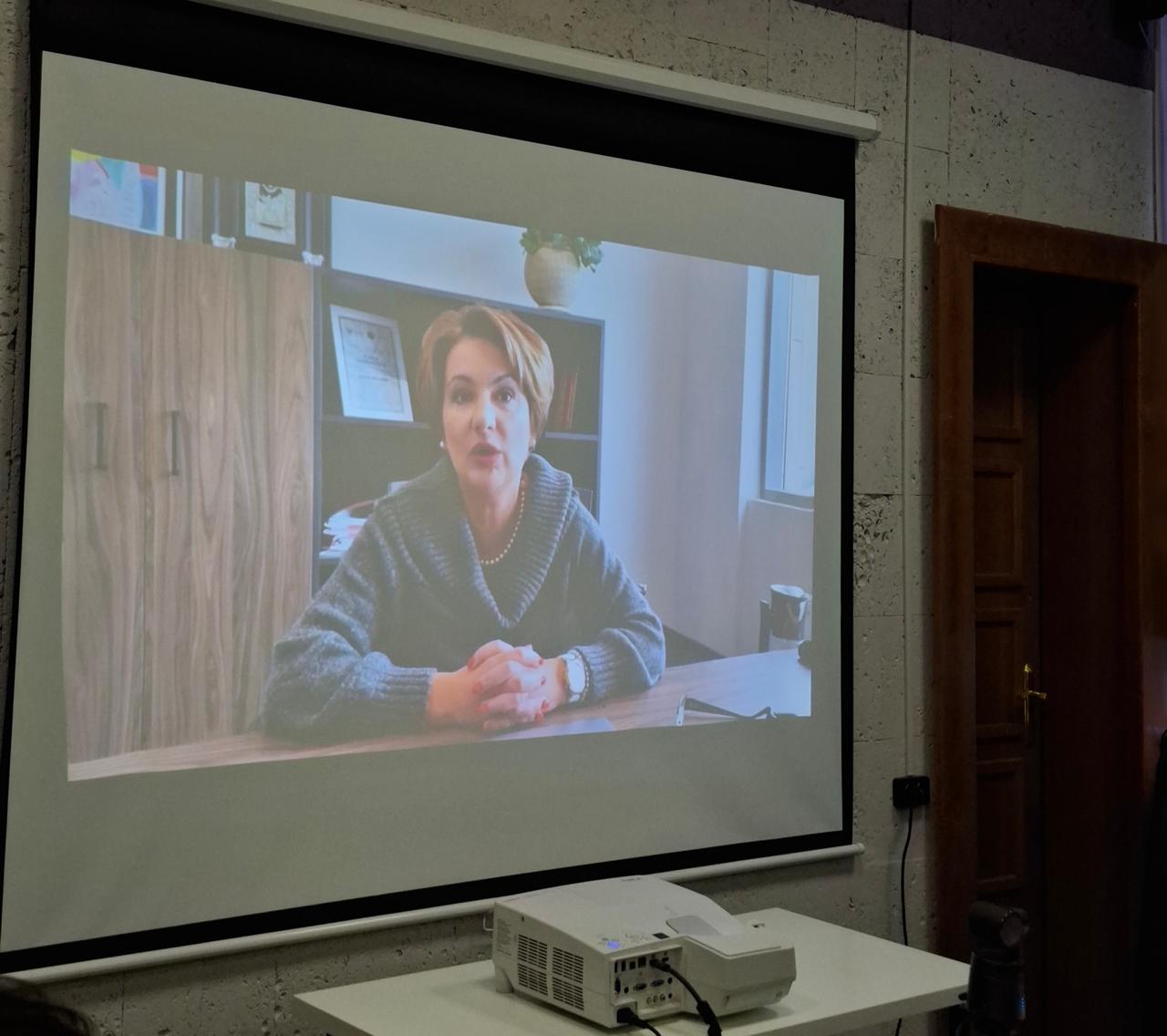Safe Ukraine 2030 Foundation organised an expert discussion ‘Towards European Standards: Implementation of Directive 2019/1023’

On 10 October 2025, the expert discussion ‘Towards European Standards: Implementation of Directive 2019/1023’ took place. The event was organised by the Safe Ukraine 2030 Foundation within the framework of a grant from EU Project Pravo-Justice implemented by Expertise France. It brought together judges, members of parliament, insolvency practitioners, lawyers, and representatives of professional associations. The discussion was focused on the practical aspects of implementing preventive restructuring mechanisms in Ukraine and the application of the new procedure.
Iryna Zharonkina, Enforcement and Protection of Property Rights Component Lead at EU Project Pravo-Justice, stressed that Ukraine was under the scrutiny of the European Union in the process of reforming insolvency procedures, both in the context of fulfilling its European integration obligations and receiving macro-financial assistance from the EU.
“Ukraine is going through insolvency reform faster than some EU countries. It is important not only to formally meet the requirements of the European Union, but also to create effective mechanisms that are useful for business. This is possible only if all the participants to the process work together in a coordinated manner,” said Iryna Zharonkina.
She added that the main task is to make insolvency procedures as efficient as possible and adapted to Ukrainian realities. “We want the experience of Ukraine to become not only an example of successful fulfilment of obligations, but also a benchmark for other EU countries,” the expert emphasised.

In turn, Olena Sukmanova, President of the Safe Ukraine 2030 Foundation, noted that preventive restructuring mechanisms were an important tool that allowed businesses to remain viable and creditors to protect their interests.
“The introduction of modern European approaches to debt restructuring is an important step towards creating a modern, efficient, and fair system that will contribute to Ukraine’s economic stability and development,” said Olena Sukmanova.
Nataliia Tyshchenko, moderator of the discussion, Member of the Board of the Ukrainian National Insolvency Trustees Association (UNITA), Deputy Chair of the Kyiv Board of UNITA, stressed that the implementation of the EU Directive on preventive restructuring should not be a formality but a real step towards improving the business environment in Ukraine.
“Our task is to create an effective tool that will really help businesses recover and avoid bankruptcy. This is only possible through a professional dialogue between all parties,” said the UNITA representative.
During the discussion, the participants outlined the main challenges relating to the implementation of the new legislation on the introduction of preventive restructuring procedures. The key issues include: good faith of debtors; effectiveness of judicial control; interaction of restructuring procedures with enforcement proceedings; and peculiarities of court practice. They emphasised the need to further improve the legislation on preventive restructuring, define clear criteria for debtor’s good faith and clarify the role of courts in ensuring a balance between the interests of creditors and debtors.
The event also featured the presentation of a booklet entitled ‘Preventive Restructuring: Vaccination Against Bankruptcy’. The booklet summarises the key provisions of the new section of the Bankruptcy Code of Ukraine, explains the differences between preventive restructuring and pre-trial rehabilitation, and provides schemes, algorithms, and practical advice for debtors, creditors and insolvency practitioners.
For reference.
The event is part of a series of expert meetings of the Safe Ukraine 2030 Foundation aimed at supporting the implementation of the provisions of EU Directive 2019/1023 into national legislation and raising awareness of key stakeholders about preventive restructuring procedures.
This initiative is supported by EU Project Pravo-Justice, implemented by Expertise France, and includes a number of analytical, training, and communication activities designed to ensure the effective implementation of the new instrument to restore debtors’ solvency at an early stage.